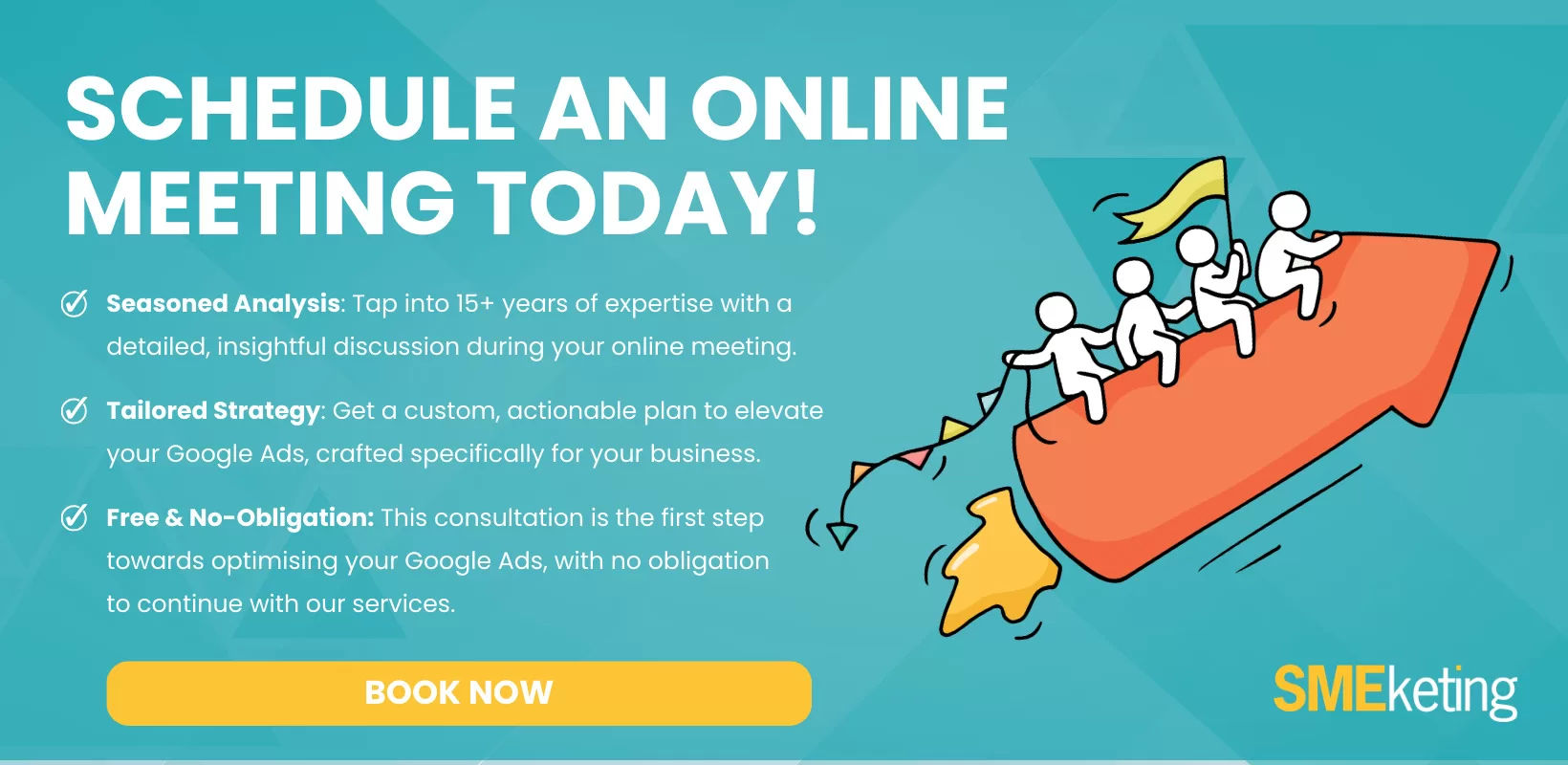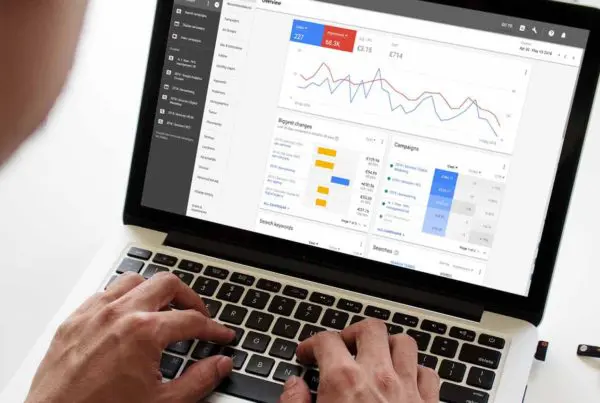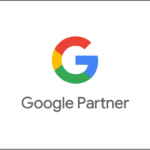Running an effective Google ads campaign means targeting a clear goal. Are you building brand awareness? Marketing your latest product? Or generating leads? How you answer the question will determine the nature of the campaign you choose to run.
Most businesses tend to rely on Google Ads for brand awareness or recognition. That’s the easiest way to use the platform. After all, any contact with your brand increases brand awareness. The challenge arises in converting attention into action – turning browsers into buyers.
Creating a Google Ads lead generation campaign means relying on every tool and trick Google Ads has available. From remarketing campaigns to the right call-to-action, I’m explaining everything you need to know about how to set up a successful lead-generation campaign with Google Ads.
Let’s get started.
What is a Lead Generation Campaign on Google Ads?
Confused? Let’s break down our terms. A lead generation campaign is designed to attract potential customers and then convert them into buyers. That’s it!
In Google Ads, a lead generation campaign is a series of ads placed to turn browsers and searchers into customers. That might seem like the fundamental goal of all Google Ads campaigns – you’d be wrong.
Too many Google Ads campaigns focus solely on brand recognition, forgetting about the second part – the bit that generates revenue. Creating a lead generation campaign ensures that you get a substantial return for every pound you spend. We call this your return on investment (ROI).
How to Set Up a Successful Lead Generation Campaign with Google Ads
1. Optimise Your Landing Page
Click on many Google Ads, and you’re transported to the company’s homepage. No matter whether they’re targeting a keyword related to a product or service, you still find yourself staring at the broadest page on their site. Now you’ve got to navigate to find the information you actually want to see.
Frustrating, right?
Here’s a rule: every time your audience needs to click, you’re losing customers. That’s why you should always match your landing page to your keyword.
If you’re advertising mountain bikes, don’t link to the generic bike page; show them your mountain bike selection. Known as “message match,” the stats suggest it can improve conversion rates by over 200%.
When searchers find what they’re looking for – and what they expect – they’re much likelier to become customers.
Learn more about landing page optimisation below:
Filter
2. Set up Conversion Tracking
Conversion tracking allows you to see how your lead generation campaign is performing. Conversions show what happens after a customer interacts with you – do they purchase a product, call your business, download the app, or sign up for your newsletter?
Given that your goal is to generate leads, this information lets you know if your Google ad is achieving the right result. If not, you may want to tweak the copy, landing page, and other features.
Setting up conversion tracking couldn’t be simpler:
- Set up a conversion action on your account.
- Copy the “tag” code.
- Past the tag to your website.
For more information about setting up conversion tracking, see this guide.
3. Select the Right Keywords
Keyword selection is the hardest part of a lead generation campaign. While you could go for the broadest keyword possible, they are (a) expensive and (b) not specific. Targeting the term “real estate,” for example, may get you seen, but it does little to generate leads.
Rather, you want to select keywords with high search intent. That often means long-tail keywords. So, instead of “real estate,” you could choose “affordable real estate in California,” for example. Long-tail keywords convert up to 36% of clicks – ten times higher than average!
Use tools like Google Keyword Planner to identify these high-search intent keywords to maximise your conversions. You’ll also want to identify poor-performing keywords and add them to your negative keyword list, i.e., the keywords for which you don’t want to appear.
4. Create a Remarketing Campaign
Remarketing campaigns target customers who’ve already visited your site. For example, if a customer viewed a shirt on your clothing eCommerce store, your remarketing campaign would advertise the shirt through Google Display Ads.
The logic is simple. Customers who’ve visited your site and reviewed your products are already interested. Maybe they were busy? Perhaps they didn’t have the money at the time? Remarketing campaigns keep the product fresh in their mind, prompting action.
Little wonder it’s the most effective targeting method for Display Ads.
5. Use a Compelling Call-To-Action (CTA)
Your call-to-action (CTA) is what you want your customer to do. They nudge the shopper towards the desired step without actually selling.
The best CTAs avoid the hard sell. Don’t say, “buy now.” Do say “Try for Free” or “Learn More.” Getting customers to sign up for email newsletters, asking them to download a free trial, or for service sectors, scheduling a consultation all result in leads.
It’s a small step to seal the final sale.
6. Try A/B Testing
Even the best copywriters and graphic designers struggle to predict how well their work will perform. From the headline to the description, testing different versions of the ad can result in a significant uptick in interest. Try different CTAs, variations on your headline, and more to boost your click-through rate and lead generation.
Doing so can also improve your quality score: the measure of how relevant your ads and landing pages are to the keywords. The better your quality score, the easier it is to appear in Google Ads. Not only does that extend your reach, but it also lowers the cost of advertising.
A/B testing is an incredible hack for optimising your lead-generation campaigns.
Work with me!
Are you looking to improve the performance of your Google Ads campaigns and drive more qualified traffic to your website or app? As a Google Ads consultant, I can help you achieve your advertising goals and maximise the success of your campaigns.
With my extensive experience and knowledge of the Google Ads platform, I can provide expert advice and guidance on the best strategies and tactics for your business. From keyword research and ad copywriting to targeting and optimisation, I can help you create and manage effective advertising campaigns that drive results.
I am dedicated to providing personalised and professional support to help you achieve your advertising objectives. Whether you’re a small business owner looking to increase sales or a marketing manager looking to improve your ROI, I can provide the expertise and support you need to succeed.
Contact me today to learn more and get started on your journey to success with Google Ads.
- How to Do Keyword Research for Google Ads - January 15, 2024
- A Comprehensive Guide to Google Ads for B2C Businesses - January 8, 2024
- How to Write Calls to Action (CTAs) for Google Ads - December 25, 2023







